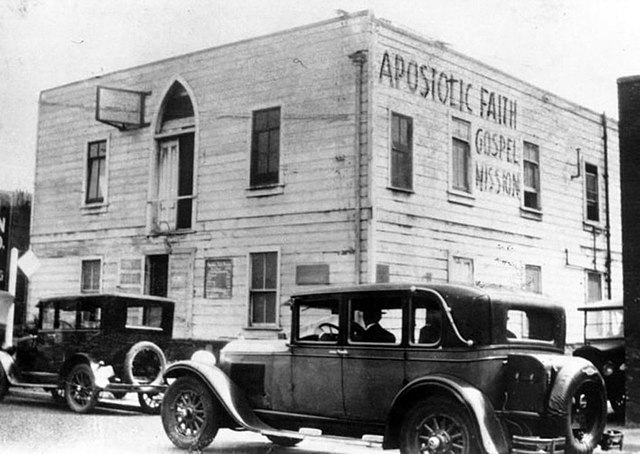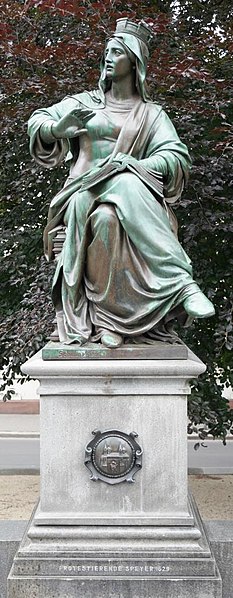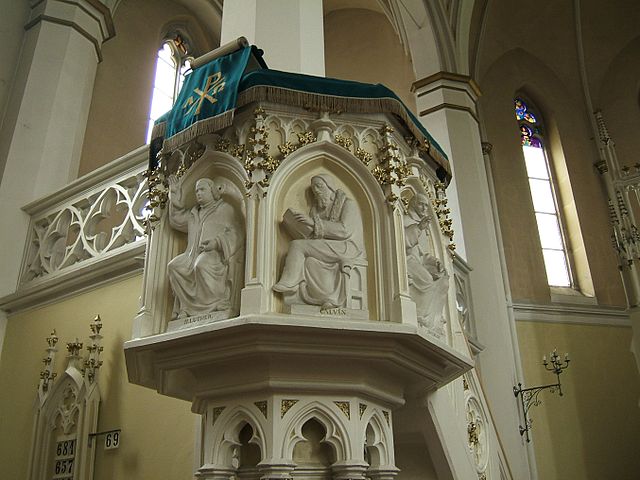Pentecostalism or classical Pentecostalism is a Protestant Charismatic Christian movement that emphasizes direct personal experience of God through baptism with the Holy Spirit. The term Pentecostal is derived from Pentecost, an event that commemorates the descent of the Holy Spirit upon the Apostles and other followers of Jesus Christ while they were in Jerusalem celebrating the Feast of Weeks, as described in the Acts of the Apostles.
The Apostolic Faith Mission on Azusa Street, now considered to be the birthplace of Pentecostalism.
William Seymour, leader of the Azusa Street Revival
Women in a Pentecostal worship service
Filadelfiakyrkan ('the Philadelphia Church') in Stockholm, Sweden, is part of the Swedish Pentecostal Movement
Protestantism is a branch of Christianity that emphasizes justification by God through faith alone, the teaching that salvation comes by unmerited divine grace, the priesthood of all believers, and the Bible as the sole infallible source of authority for Christian faith and practice. The five solae summarize the basic theological beliefs of mainstream Protestantism.
The door to All Saints' Church in Wittenberg, where Martin Luther allegedly posted his Ninety-five Theses in 1517 detailing his concerns with what he saw as the Catholic Church's abuse and corruption. The Ninety-five Theses gave rise to Christian Protestantism as one of the world's primary religions, making Wittenberg the "cradle of Protestantism".
Memorial Church, finished and consecrated 1904, in Speyer, Germany commemorates the Protestation.
The Protesting Speyer, part of the Luther Monument in Worms, Germany
Two central figures of the Protestant Reformation, Martin Luther and John Calvin, depicted on a church pulpit; both Luther and Calvin emphasized making preaching a centerpiece of worship.








